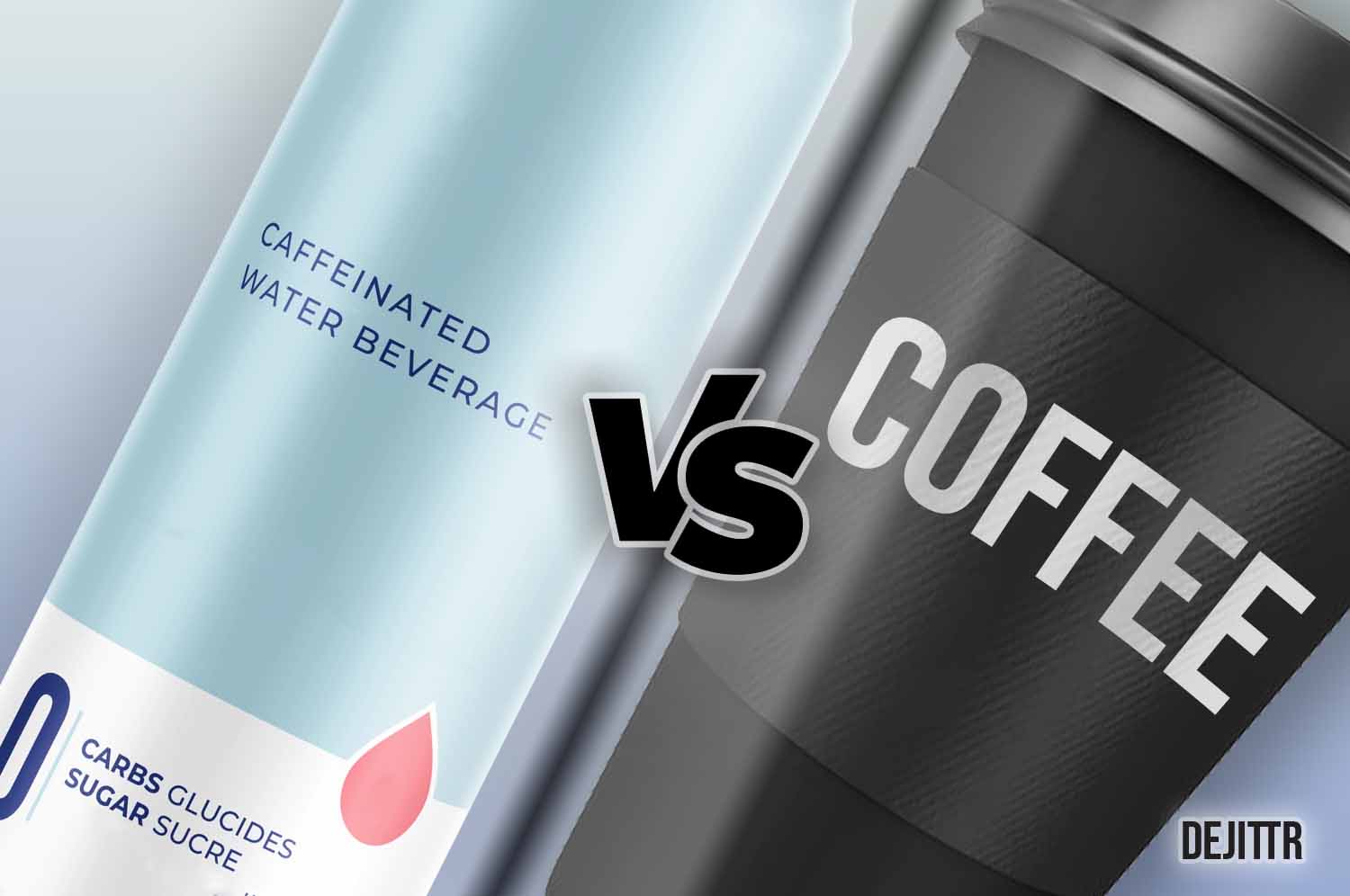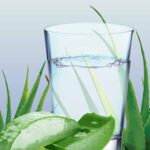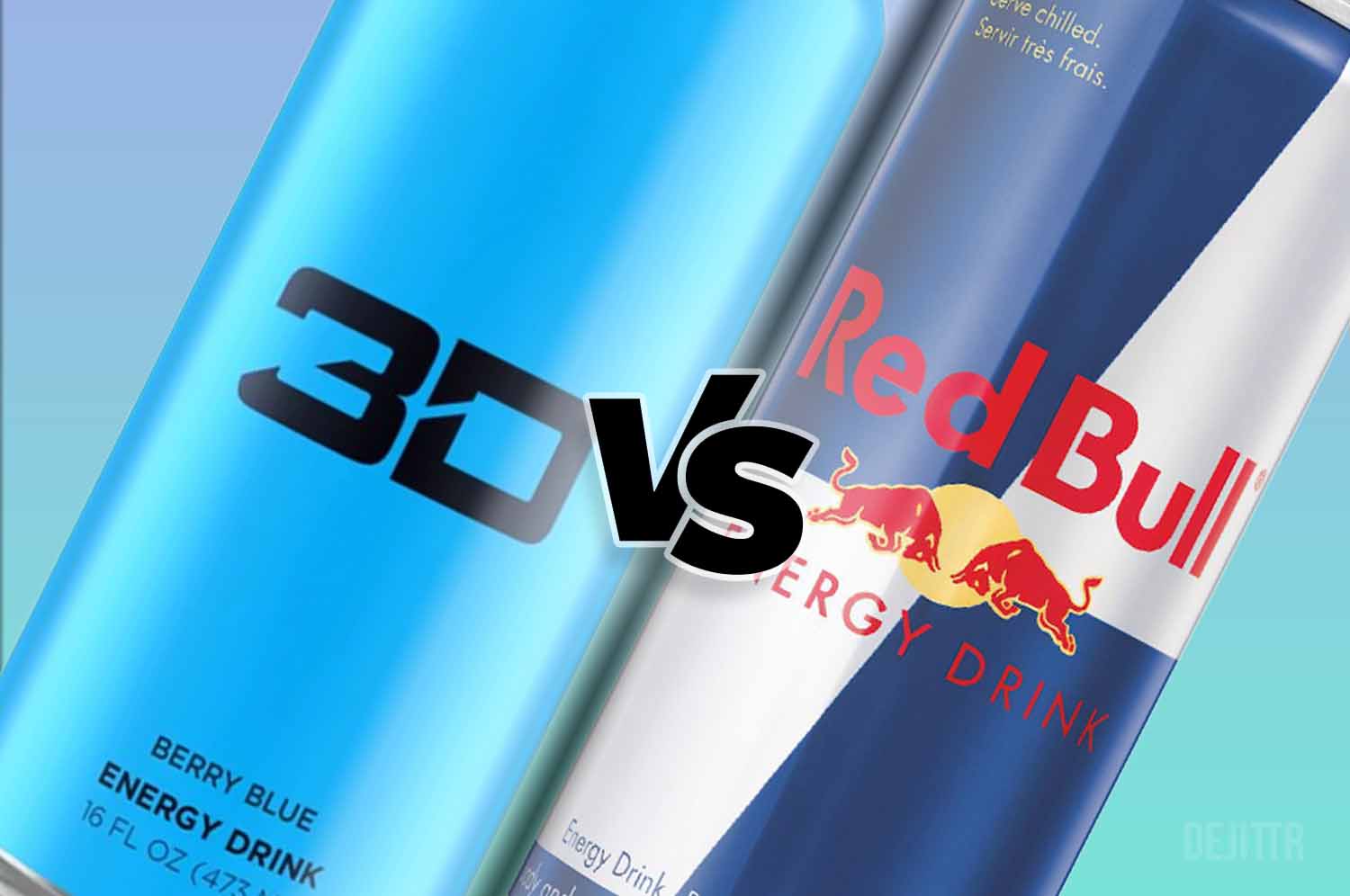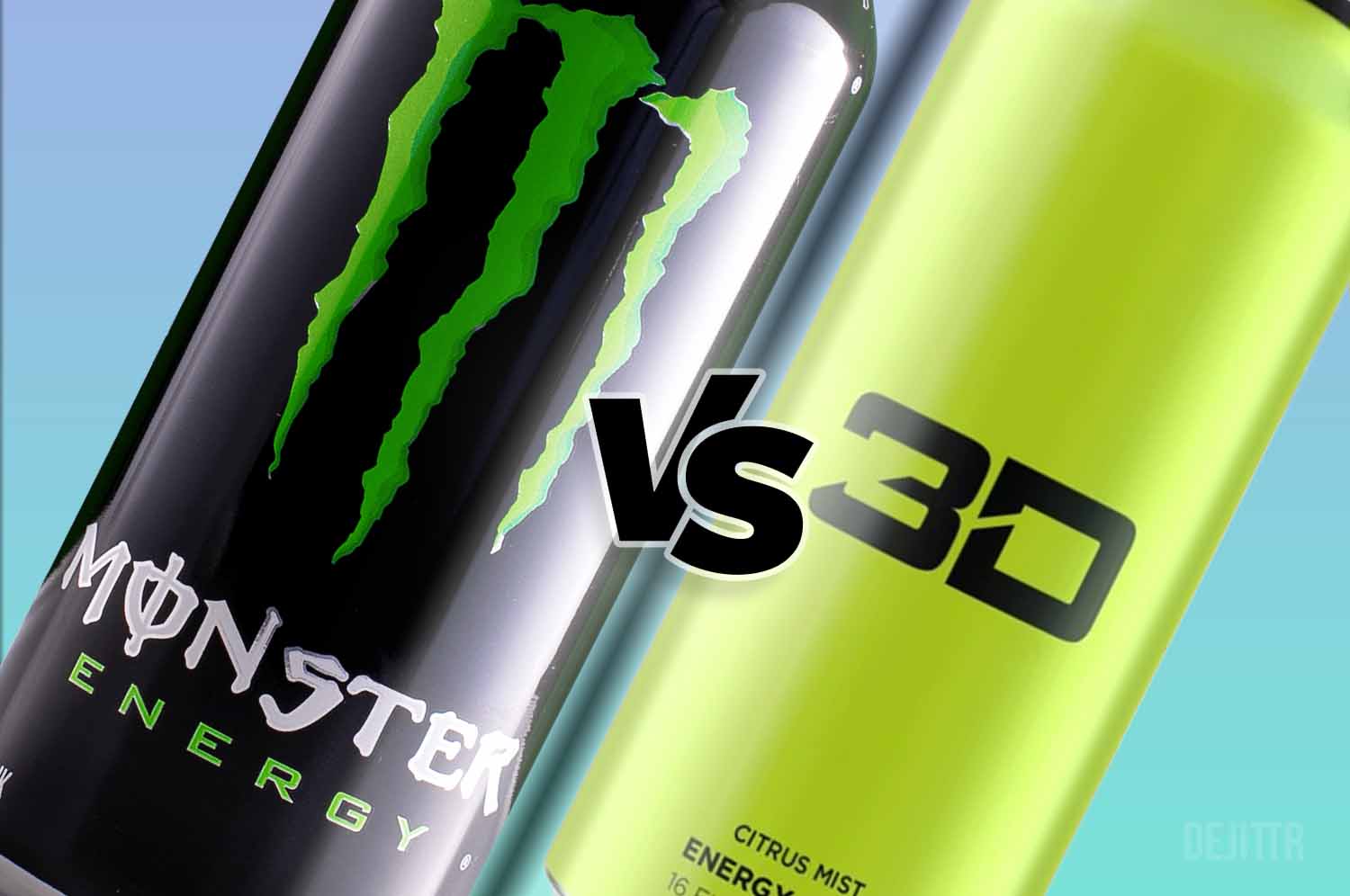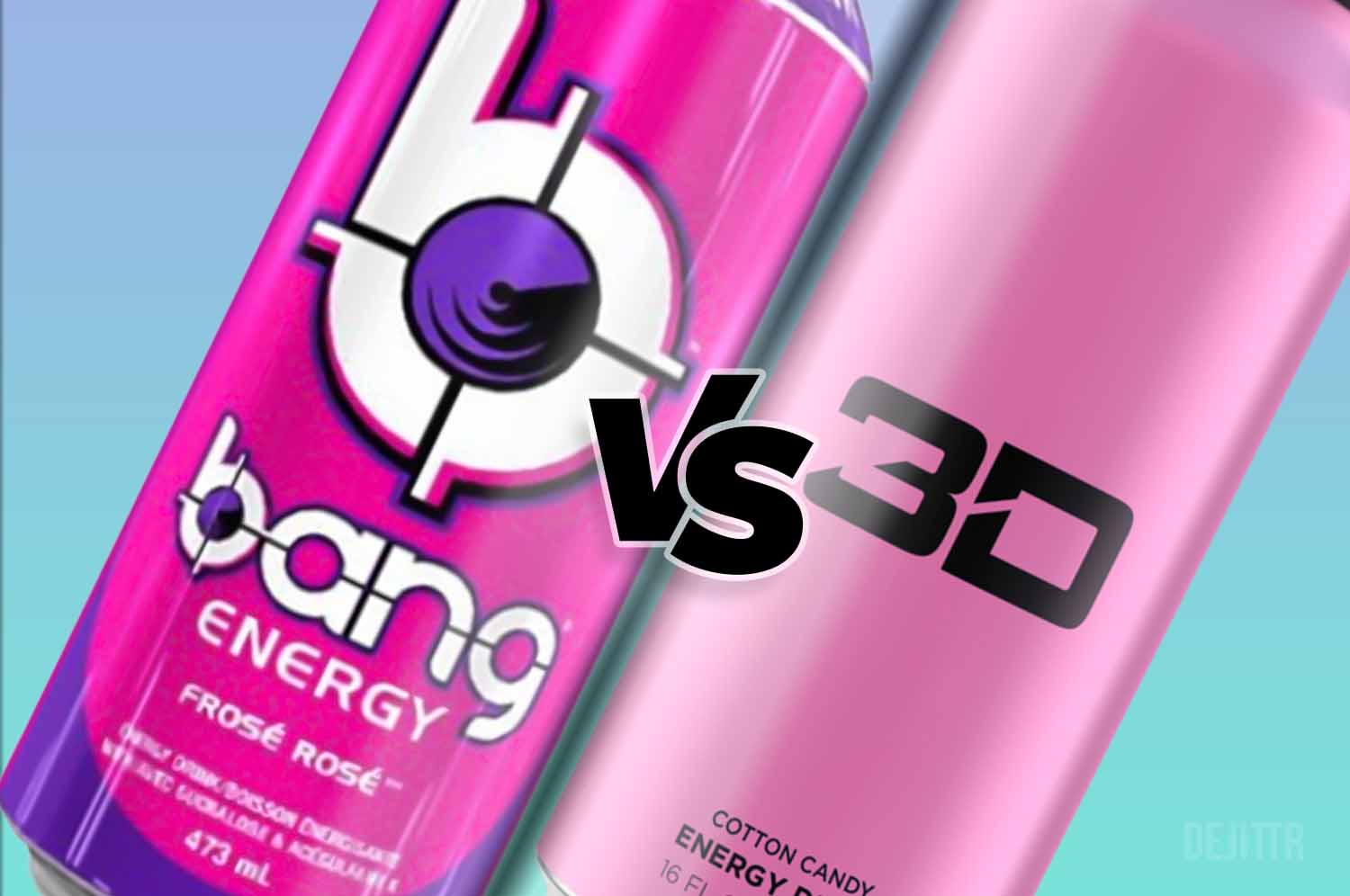Caffeinated drinks are among the most in-demand beverages in the market, compelling many companies to innovate their products to cater to the ever-volatile consumer behavior.
Some consumers worry about the effects of drinking too much coffee and prefer a low-calorie and less addictive drink with a similar kick of caffeine. That’s essentially how caffeinated water came about.
Key Takeaway:
Caffeinated water typically has three times less caffeine content than brewed coffee. However, various brands infuse caffeinated water with varying amounts of caffeine and artificial flavors. Some products may even have more caffeine than a regular cup of coffee.
This article will discuss the differences between caffeinated water and coffee in terms of caffeine content, flavors, and health effects. Read on to learn more!
Is Caffeinated Water Healthier Than Coffee?
Flavorless caffeinated water is better than coffee because it contains much less caffeine, has zero calories, and rehydrates the consumer. However, it still depends on your preference. In moderation, coffee also has plenty of benefits, making it a popular beverage.
One of the top reasons people like drinking coffee is caffeine’s effect on the body. Many people claim they simply cannot start their day on a positive note without first having a cup of coffee. It is because caffeine boosts blood circulation and makes them feel energized.
This effect can be pretty addictive, and it’s rather challenging for long-time consumers to stop themselves from drinking coffee. However, research shows that drinking a moderate amount of coffee daily has many health benefits.
Nonetheless, many people still feel alarmed about the health risks associated with coffee consumption, especially vulnerable individuals like children and pregnant women.
Since it can be challenging to stop drinking coffee immediately, you can ease your way out of the addiction by drinking low-caffeine beverages like flavorless caffeinated water before transitioning to pure water.
Additionally, some people enjoy the benefits of caffeine and worry only about the unpleasant qualities of coffee, such as the following:
- The bitter taste of black coffee
- The high-calorie content of sweetened coffee
- The high cost of specialty coffee
If you are concerned about the same things but want to get an energy boost from caffeine, you may find caffeinated water better than coffee. You can also choose caffeinated water with higher caffeine content.
Meanwhile, if you find flavorless caffeinated water boring, you can find several options in the market, such as carbonated and citrus-flavored ones. However, one downside of such varieties is the number of synthetic ingredients used to produce such flavors.
Although caffeinated water is slowly gaining popularity among adventurous coffee drinkers, some conservative coffee enthusiasts feel uncertain about transitioning. It is primarily because there is still insufficient information about caffeinated water and its long-term effects.
Let’s discuss several differences between caffeinated water and coffee in more detail below.
The Caffeine Content of Caffeinated Water and Coffee
The most important factor in choosing between coffee and caffeinated water is the caffeine content. Ironically, not many realize this, as most people associate preference only with taste.
For instance, if you have high caffeine tolerance, you’ll most likely be unsatisfied with caffeinated water with low caffeine content because of the remarkable lack of an energy boost.
Conversely, if you have low caffeine tolerance, you can get the jolt that you need from a low-caffeine sparkling water product.
Coffee
An 8-ounce (236.6 ml) cup of black coffee has approximately 96 mg of caffeine. This amount of caffeine is safely below the daily intake limit of 400 mg for an average adult.
Of course, every coffee lover has a different preference for the method of preparation. And every technique infuses a different dosage of caffeine into every cup of coffee. For instance, a 1-ounce (29.6 ml) shot of espresso can contain as much as 63 mg of caffeine.
Caffeinated Water
On the other hand, there’s a wide range of options for caffeinated water. Their caffeine content ranges from 30-120 mg per 8-16.9 ounces (236.6 – 500 ml).
Perrier Energize has as much as 99 mg of caffeine in every 8.46-ounce (250 ml) serving. That’s as much caffeine as a cup of black coffee. In contrast, caffeinated water like Water Joe contains less caffeine at 85 mg per 23.4 ounces (700 ml).
The Flavors of Caffeinated Water and Coffee
Another important factor in choosing between caffeinated water and coffee is the flavor. This factor is much easier to recognize because it’s pretty straightforward. Some people like bitter coffee, while others prefer sweet coffee.
As a matter of fact, many coffee manufacturers and specialty cafes consider people’s taste preferences when creating new coffee products. This is also apparent even in other caffeinated products like energy drinks and soda.
On the other hand, some people prefer the refreshing taste of carbonated drinks or pure water.
Let’s evaluate the flavor mechanics of various caffeinated water and coffee products:
Coffee
The characteristic flavor of coffee comes from the chemical interactions among the various components of the coffee beans and the roasting and brewing method employed.
Caffeine is naturally a bitter substance, significantly contributing to the bitterness of coffee. Depending on the method used, you will get varying amounts of caffeine. Meanwhile, many other components of coffee remain in the coffee grounds.
With this knowledge, manufacturers and cafe owners formulate their coffee products to cater to diverse consumer palates. Traditional coffee lovers may prefer the bitter taste of brewed coffee or the strong and concentrated espresso shot.
On the other hand, the young demographic generally like sweetened coffee or the exciting flavor of popular products, such as salted caramel. In most cases, they simply need a balance between flavor and energy boost.
The added sugar in sweetened coffee also helps improve concentration, making it unnecessary to add more caffeine to the coffee. That’s why instant coffee typically has less caffeine than other coffee products.
Decaffeinated coffee products may still taste much like regular coffee due to the chemical interactions between other compounds in the coffee beans. Moreover, the process does not always remove all of the caffeine, so you’ll still get the distinct coffee flavor.
Caffeinated Water
If caffeine is naturally bitter, it might be puzzling just how some companies manufacture flavorless caffeinated water. One simple explanation is the dilution of low amounts of caffeine in relatively large volumes of water.
If you read the product labels of flavorless caffeinated water, you may notice it contains zero calories and other ingredients. However, you will find some labels stating the product contains a small amount of sodium.
Some product labels may also indicate the presence of electrolytes, which most likely is sodium because the substance is, after all, an electrolyte. Some manufacturers hesitate to display sodium on their labels because many people are sensitive to salt.
Interestingly, sodium is known to suppress bitterness in food and is widely used in food manufacturing and culinary arts.
On the other hand, flavored caffeinated water products typically have higher caffeine content because they can mask the bitterness with other ingredients, such as artificial flavors and sweeteners.
Health Effects of Caffeinated Water and Coffee
Various coffee and caffeinated water products contain safe levels of caffeine. Even the strongest products have only approximately 200 mg per serving. While these values are generally safe, they can be harmful to some people, including:
- Children below 16 years old
- Pregnant women
- People with hyperacidity problems or gastroesophageal reflux disease (GERD)
- People with anxiety or panic disorder
- People with pre-existing heart disease
Therefore, consumers must also consider the health effects of these beverages.
Coffee
It is a widely known fact that caffeine is addictive, which is why it can be dangerous for some people who go beyond their daily limits. Long-time coffee drinkers may have withdrawal symptoms when they try to reduce their coffee intake or stop drinking altogether.
Some coffee blends can also be too acidic for people with sensitive stomachs. Moreover, strong coffee blends can trigger anxiety and depression in predisposed individuals.
However, when consumed in moderation, it can present the following benefits:
- Improved blood circulation
- Improved brain function
- Weight loss
- Increase in antioxidants
- Regulation of blood sugar levels
Caffeinated Water
Caffeine is a known diuretic, sometimes resulting in dehydration when consumed in excess. That’s why drinking any kind of coffee can leave you feeling thirsty.
Conversely, caffeinated water can provide you with an energy boost while making you feel refreshed and rehydrated. This is one of the reasons why some people think caffeinated water is better than coffee.
However, caffeinated water can also present some disadvantages. For instance, many products use synthetic caffeine. It has essentially similar effects to natural caffeine but works much faster. It is due to the possibility that synthetic caffeine can be absorbed by the body more quickly.
While it is a good thing, it can also be disadvantageous since it can be broken down more quickly and reduced to molecules that don’t have the longer stimulating effects of natural caffeine.
As a result, consumers might drink more of the product and unknowingly exceed their daily caffeine limits.
Final Thoughts
Caffeinated water and coffee are both popular beverages that can be beneficial when consumed in the right amounts. Conversely, any seemingly safe food or drink will naturally pose some risks when consumed in excess.
If you have sensitivities to caffeine and other specific ingredients, be sure to check the nutrition label of the product you want to try. Such knowledge can help keep you safe while allowing you to enjoy and maximize the benefits of caffeine.


